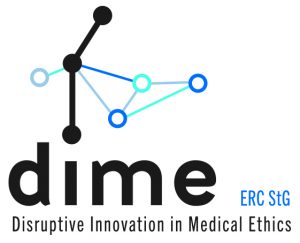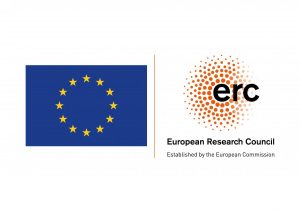First published on July 21st 2021.
In most European countries, health care expenditure as a percentage of GDP has doubled since the 1970s. Contrary to what many may expect, the dominant driver of this increase in expenditure is not the aging population, but rather medical innovation. While precision oncology, robot surgery, immunotherapy, gene therapy and biologics may improve the quality of care for our patients, they also, unfortunately, substantially raise the bill.
Economist Clayton Christensen has therefore repeatedly argued for a different kind of innovation, which he calls disruptive innovation, to counter this untenable trend towards the derailment of public health budgets caused by so-called sustaining innovation. In the context of healthcare, whereas sustaining innovation is aimed at curing ever more complicated diseases in ever more sophisticated ways, disruptive innovation is aimed at accessibility and convenience, oftentimes sidelining the physician.
Disruptive innovation in medicine has the potential to change the way healthcare is administered and possibly transform the very concept of healthcare
Examples of such disruptive innovation are mHealth, wearable eHealth devices, telemedicine, direct-to-consumer genetic testing or low-cost biomedical devices. Many of these disruptive innovations are not initiated by traditional players in the field of healthcare (such as pharmaceutical companies), but rather by established or new players in the IT sector, and several of them rely greatly on widespread sharing of health data by the users of these new technologies and on algorithms transforming those data into health advice.
At least in their early days, these innovations are unlikely to have a spectacular impact: they will not cure patients who could not be cured before or otherwise improve quality of care, but will rather serve ‘recreational’ goals, convenience and/or create a feeling of being more ‘in charge’ of one’s health. However, once these innovations start finding a broader public and once their quality is increasingly improved, they have the potential to severely change the way healthcare is traditionally administered, thereby transforming the very concept of healthcare.
DIME

The ERC funded project DIME, which will be carried out within Ghent University’s interdisciplinary Metamedica platform, will investigate the ethical implications of two consequences of this currently ongoing disruption in healthcare. First, it will investigate the shifts in responsibilities that ensue on four levels: (1) from physician to patient; (2) from more specialized healthcare professionals to less specialized healthcare professionals; (3) from healthcare professionals to non-medical players; and (4) from healthcare providers to data collectors. Second, it will track shifts in key principles and concepts governing medical ethics (e.g. the concept of informed consent), critically assess which concepts require re-thinking and actively contribute to making the medical ethics toolbox of the future better equipped to deal with the disruptions that lay ahead.
Let’s illustrate what is at stake with an example, a “white eye detector app”. Such an app can be downloaded for free and scans photos for a white reflection of the pupil of the eyes of babies and young children. This white glow can be a sign of retinoblastoma, an eye cancer that is seen in very young children and – if not detected early – can lead to blindness. The app has quite some false positives and false negatives, and thus it is less performant as a screening tool than a consult with an ophthalmologist, yet it is very accessible, effortless and free, so a very nice first screening test, to be followed up on when concerning results appear. If the performance of the app improves in the future, it might become able to perform a task as well has highly skilled professionals at a fraction of the cost. But, at the same time, we see a number of shifts in responsibilities: the (parent of the) patient becomes a medical caregiver (performing medical screening) and a research participant (if data are shared to improve the algorithm), without contact with skilled physicians or researchers or any of the traditional safeguards in medicine and medical research.
At the level of medical ethics, our traditional framework of the doctor-patient relationship may no longer be fit for purpose.
This can be either framed as empowering, a counterweight to medical paternalism (as advocated by, for example, Eric Topol), or as putting the patient in a vulnerable position, in which they now have to navigate, for example, commercial interests and the impact of sharing personal health data.
At the level of medical ethics, this case shows us that our traditional framework of the doctor-patient relationship, in which the doctor is expected to guarantee respect for patient autonomy and safeguard the patient from harm, may no longer be ‘fit for purpose’. Although the app-users will have to click the “Agree to the terms and conditions” button, this can hardly be equaled to a proper informed consent in traditional healthcare. Is this problematic? Should we force app developers to build in a proper informed consent (even if that will significantly lower uptake and thus public health benefits)? Should we ‘tone down’ the informed consent requirement to some sort of broad consent? Or do we need different concepts to safeguard the patient/citizen, like collective oversight mechanisms or stewardship consent models?
The DIME project will pave the way towards answering these questions in a critical yet constructive way, undoubtedly leading to more questions, but hopefully also to better and more affordable healthcare.
Author: Heidi Mertes, Associate Professor in Medical Ethics at Ghent University and co-director of Metamedica.
Further reading
Could your smartwatch become your new family doctor? Dare To Think Magazine, Ghent University, 2020.
C M Christensen, J H Grossman and J Hwang. The Innovator’s Prescription. A disruptive solution for health care. Mc Graw Hill Education, 2017.
E Topol. The patient will see you now. Basic Books, 2016.
